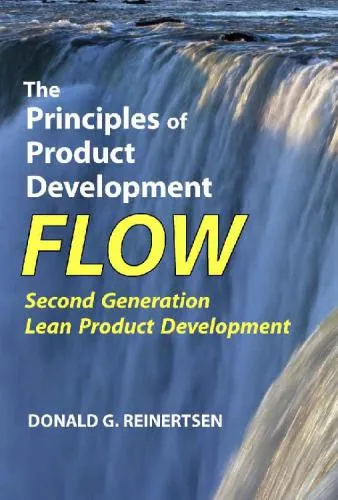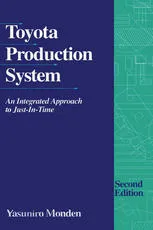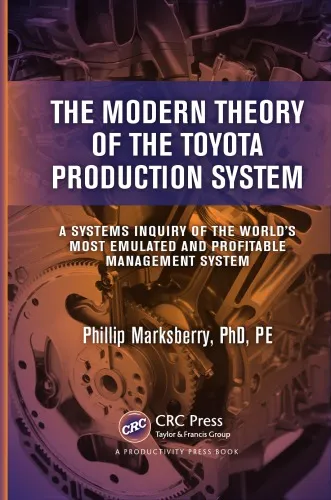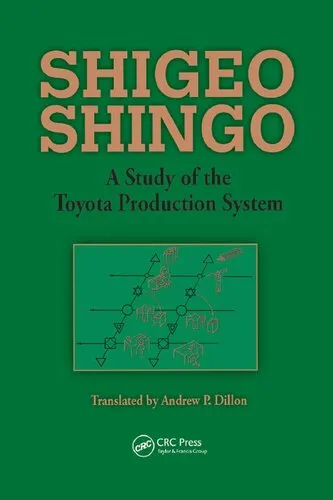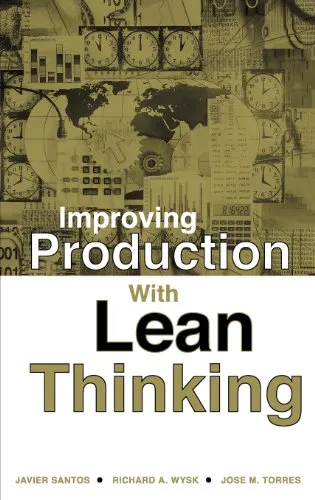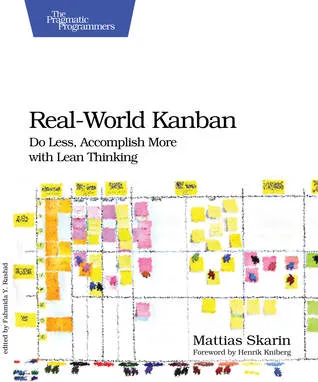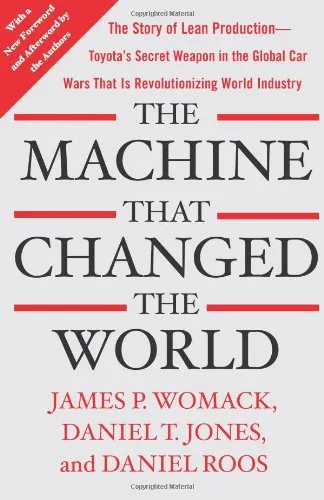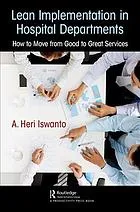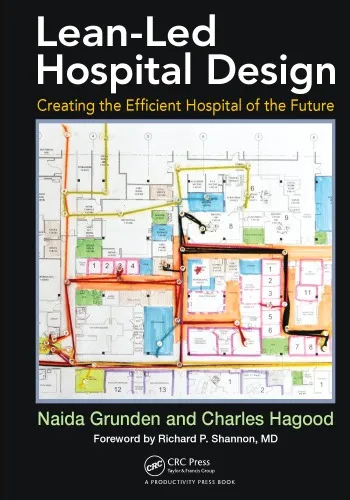Handbook of Lean Manufacturing in the Food Industry
4.0
Reviews from our users

You Can Ask your questions from this book's AI after Login
Each download or ask from book AI costs 2 points. To earn more free points, please visit the Points Guide Page and complete some valuable actions.Related Refrences:
Introduction
The food industry is one of the most dynamic and complex sectors in the global economy. With rising consumer expectations, stricter regulations, and increasing pressures on cost and sustainability, food manufacturers are continuously challenged to innovate and optimize their operations. "Handbook of Lean Manufacturing in the Food Industry" serves as a comprehensive guide to implementing Lean principles within this sector, addressing its unique challenges and offering actionable strategies to streamline processes and improve productivity.
This book bridges the gap between traditional Lean manufacturing frameworks and the specific needs of the food production environment. While Lean principles originated in the automotive industry, this handbook adapts them for applicability to an industry where perishability, traceability, and hygiene are critical considerations. Whether you are an industry professional, an academic, or a student eager to learn about Lean concepts in real-world scenarios, this book is tailored to provide deep insights and practical examples.
Detailed Summary of the Book
The "Handbook of Lean Manufacturing in the Food Industry" is structured to take readers on a step-by-step journey toward understanding and mastering Lean practices. Starting with foundational principles of Lean thinking, the book progresses to specialized applications in food production, exploring topics such as waste elimination, inventory management, and quality assurance.
The book delves into the key tools and methodologies of Lean, including Value Stream Mapping (VSM), Kaizen, 5S, and Just-in-Time (JIT) systems. It highlights how these tools can be adapted to address specific issues in the food industry, such as managing the supply chain for perishable goods, ensuring food safety, and reducing energy waste. With each chapter, readers discover practical strategies supported by case studies from real-world food manufacturing operations.
Additionally, the handbook discusses emerging trends in the sector, such as digital transformation, automation, and the integration of Lean with sustainability practices. The book emphasizes a holistic approach, demonstrating how Lean can contribute not only to financial efficiency but also to environmental and social responsibility in food production.
Key Takeaways
- Comprehensive overview of Lean manufacturing principles tailored specifically for the food industry.
- Step-by-step instructions for implementing Lean methodologies, including tools like 5S, JIT, and VSM.
- Insights into tackling unique challenges in food production, including perishability, traceability, and compliance with food safety standards.
- Real-world case studies illustrating the tangible benefits of Lean in food manufacturing operations.
- Emphasis on sustainability, showcasing how Lean practices can align with environmental goals.
- Actionable strategies to improve workflow efficiency, reduce waste, and boost overall productivity.
Famous Quotes from the Book
"In the food industry, Lean is not just a strategy; it is a mindset–one that prioritizes value creation, waste elimination, and customer satisfaction above all else."
"A truly Lean food enterprise doesn't just reduce costs; it enhances product quality, shortens lead times, and fosters a culture of continuous improvement."
"Every form of waste in food manufacturing is an opportunity to redesign processes, leveraging the power of Lean to build a resilient, efficient, and competitive operation."
Why This Book Matters
The food industry is unique in its complexity, demanding innovative approaches to remain competitive while adhering to regulatory standards and meeting consumer demands. This book is not just another technical manual; it is a solution-oriented guide that targets the pain points of food manufacturers.
By adopting Lean methodologies, companies can achieve substantial reductions in waste and inefficiency, making it possible to produce high-quality products while maintaining profitability. Furthermore, in an era where sustainability is becoming a vital business priority, Lean provides a powerful toolkit to minimize environmental impact and align operations with sustainable development goals.
This book stands out for its practical focus, ensuring that Lean concepts are not merely theoretical but also immediately applicable to real-world scenarios. Its balanced approach makes it suitable for both novices and experienced professionals. Above all, "Handbook of Lean Manufacturing in the Food Industry" equips readers with the knowledge and confidence to initiate meaningful change in their organizations, fostering a culture of continuous improvement that benefits both the company and the consumer.
Free Direct Download
You Can Download this book after Login
Accessing books through legal platforms and public libraries not only supports the rights of authors and publishers but also contributes to the sustainability of reading culture. Before downloading, please take a moment to consider these options.
Find this book on other platforms:
WorldCat helps you find books in libraries worldwide.
See ratings, reviews, and discussions on Goodreads.
Find and buy rare or used books on AbeBooks.
1442
بازدید4.0
امتیاز0
نظر98%
رضایتReviews:
4.0
Based on 0 users review
Questions & Answers
Ask questions about this book or help others by answering
No questions yet. Be the first to ask!

